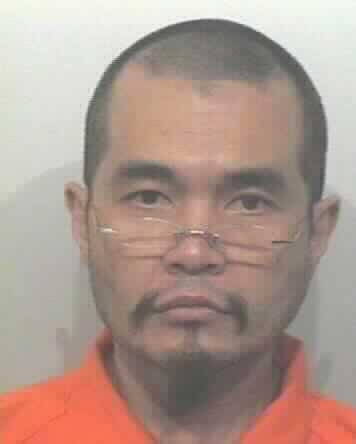In Seattle Weekly’s current cover package, we look at Gov. Jay Inslee’s moratorium on the death penalty and its impact on Frank Holden, the father of a 12-year-old girl slain by the man next in line for execution. Holden, who has been waiting nearly 26 years to see killer Jonathan Lee Gentry die, expresses his deep distress at what he sees as a lack of justice.
Holden’s anguish, subsequently captured on Dori Monson’s KIRO show, is perfectly understandable. And yet to attorney Katie Ross, the Gentry case also highlights how subjective the notion of justice is when it comes to the death penalty.
Ross, director of the Washington Death Penalty Assistance Center, which trains lawyers for capital cases, suggests looking for comparison at the case of Terapon Adhahn. Like Gentry, Adhahn killed a 12-year-old girl. Not only that, but Adhahn, a previously convicted sex offender, raped victim Zina Linnik as well. (There have been suspicions that Gentry sexually assaulted Cassie Holden, but that was never proven.)
“I wanted to destroy a human, cause pain,” Adhahn later told FBI agents, explaining what drove him to abduct Linnik from her backyard on July 4, 2007.
Yet, Adhahn received a sentence of life in prison without the possibility of parole rather than the death penalty. Prosecutors agreed not to seek his execution in exchange for Adhahn telling authorities where Linnik’s body was buried.
“What message does that send the next killer?” Ross asks. She suggests the message is that murderers who are more “sophisticated,” who bury their victims’ bodies and then use the information as “bargaining chips,” will be able to avoid death penalty prosecutions. It certainly worked that way for Gary Ridgeway, the most infamous killer to escape the death penalty. The so-called Green River Killer also made a deal with prosecutors based on his cooperation in finding the missing bodies of many of the women he murdered.
In addition to her work at the assistance center, Ross represents Joseph McEnroe, one of two defendants facing the death penalty for his alleged role in a Carnation killing spree that killed six, including two children. So you could say she has a vested interest in arguing against capital punishment. At the same time, she makes a persuasive case that many of the inmates serving life sentences—not just Ridgeway and Adhahn–“committed murders as bad or worse than the men who have been executed or are now on death row.”
Ross ticks off a few more lifers with heinous crimes, among them Benjamin Ng, the primary shooter in the Wah Mee massacre that killed 13; Richard Prather, a Kennewick man who killed his wife and two children, 4 and 7, by slashing their throats; and Seattleite Daniel Hicks, who after murdering his girlfriend and 13-week-old baby watched football on TV.
Ross is far from the only one to observe inequity in the way the death penalty is applied. It was a primary reason mentioned by the governor in explaining his moratorium. But Inslee has been reluctant to delve into any particular cases. With the fate of capital punishment looming, it’s well worth doing so.








